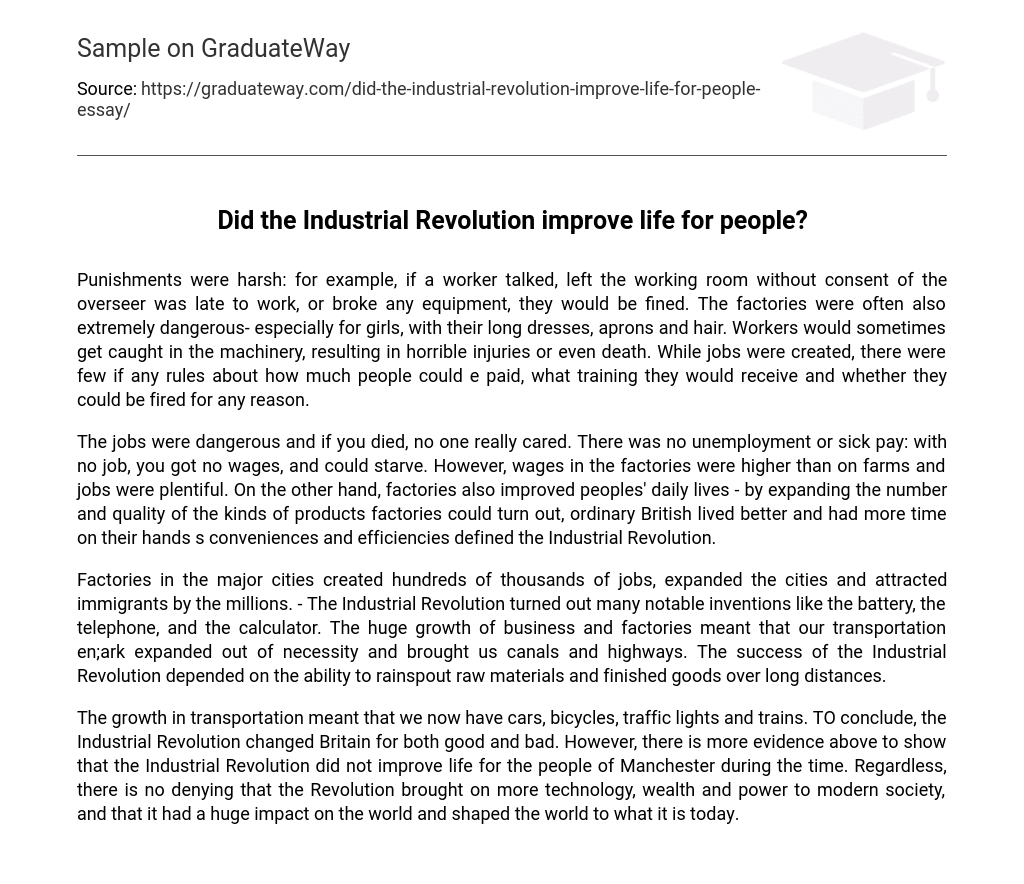Workers in the factories were subject to harsh penalties for several offenses, such as unauthorized talking, leaving the work area without permission, tardiness, and damaging equipment. The dangerous conditions in the factories posed a particular risk to girls who wore long dresses and aprons and had long hair. Sadly, there were instances where workers got caught in machinery, leading to serious injuries or death. Despite some job prospects arising, there were limited regulations regarding wage caps, training provisions, and termination conditions.
The jobs were risky and if you perished, there was little concern. Unemployment and sick pay were nonexistent – no work meant no pay, leaving a possibility of starving. Nonetheless, factories offered higher wages compared to farms and had abundant job opportunities. Furthermore, factories enhanced the lives of ordinary British individuals. They expanded the range and quality of products, leading to an improved standard of living and increased leisure time. These conveniences and efficiencies epitomized the Industrial Revolution.
Factories in major cities created numerous job opportunities, urban growth, and attracted many immigrants. The Industrial Revolution led to significant inventions like the battery, telephone, and calculator. The substantial progress of businesses and factories required the development of transportation infrastructure like canals and highways. The success of the Industrial Revolution relied on its capacity to transport raw materials and finished products over long distances.
The Industrial Revolution led to the introduction of cars, bicycles, traffic lights, and trains as transportation options due to growth. While there is debate about the positive or negative effects of this revolution on Britain, evidence indicates that life in Manchester did not improve during this time. However, it is undeniable that the revolution resulted in significant progress in technology, wealth, and power for society—ultimately shaping the world as it exists today.





